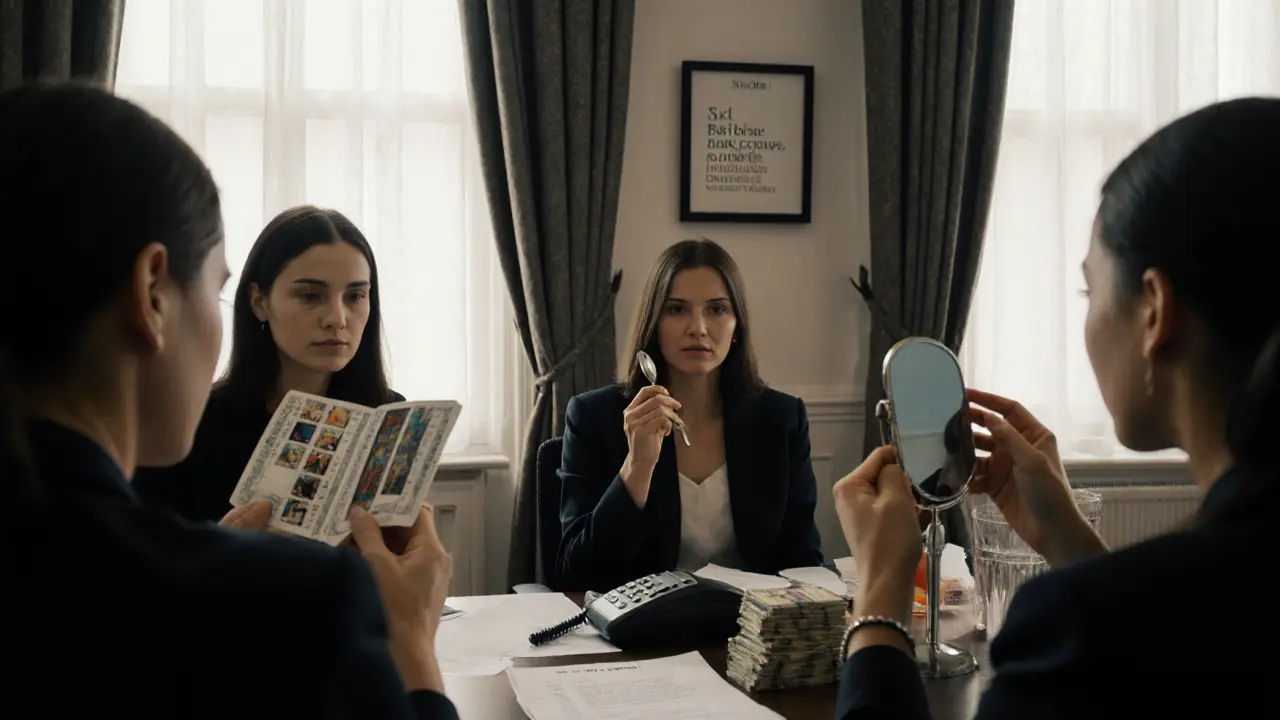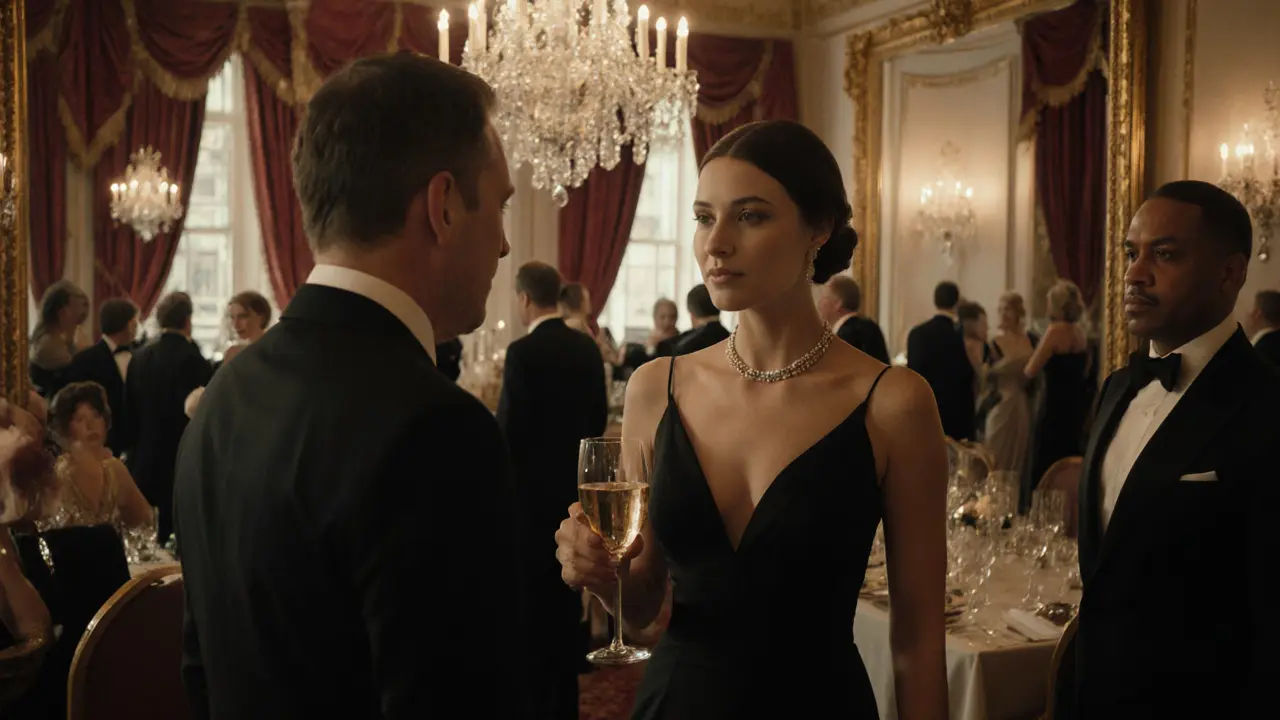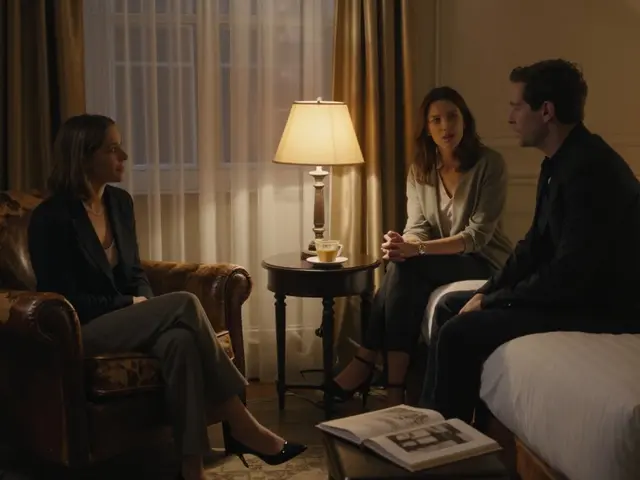When you think of London’s high society events-charity galas, private art openings, exclusive club nights-you picture champagne flutes, tailored tuxedos, and whispered conversations in drawing rooms. But behind the velvet ropes and gilded mirrors, there’s another presence that’s quietly become part of the fabric: call girls hired not for sex, but for presence.
They’re Not What You Think
The word "call girl" carries outdated, sensational baggage. In modern London, the women hired for elite events are often highly educated, multilingual, and trained in social navigation. Many have backgrounds in diplomacy, theater, or fashion. They don’t show up to provide sexual services. They show up to make someone else look good.At a £5,000-a-plate fundraiser for the Royal Academy, a prominent art dealer brought a companion who knew every curator in the room. She didn’t drink too much. She didn’t overshare. She asked smart questions about emerging artists, laughed at the right moments, and vanished before midnight. No one asked where she came from. Everyone assumed she was a gallery director’s wife.
This isn’t rare. It’s routine. Private clubs like Annabel’s, The Goring’s garden parties, and the Savoy’s after-dinner salons all have unspoken rules: if you’re a man with influence but no date, or a woman who wants to avoid the scrutiny of being alone, you hire someone who blends in.
Why High Society Needs Them
London’s upper crust runs on appearances. A single woman at a black-tie dinner without a male escort raises eyebrows. A man without a woman beside him looks lonely-or worse, irrelevant. The social code demands balance.There’s also the matter of perception. If you’re a hedge fund manager hosting a dinner for potential investors, having a beautiful, articulate woman at your table signals success. It’s not about attraction-it’s about signaling. She becomes a living trophy, a quiet proof that you belong.
One former escort, who worked exclusively for clients in Mayfair and Knightsbridge between 2018 and 2022, told me: "I was never asked to sleep with anyone. I was asked to remember which guest hated cilantro, which one preferred Burgundy over Bordeaux, and which one had just gone through a messy divorce. My job was to make them feel seen. Not desired. Seen."
The Selection Process
These women aren’t found on random apps. They’re vetted through word-of-mouth networks, discreet agencies with no websites, and referrals from other clients. Background checks are common. Many agencies require proof of education, language fluency, and a clean criminal record.Appearance matters-but not in the way you’d expect. No exaggerated makeup. No low-cut dresses. No flashy jewelry. The uniform is understated elegance: a little black dress from a boutique in Notting Hill, natural hair, minimal perfume. They’re told to avoid social media. No Instagram. No LinkedIn. No public trace.
Training includes etiquette lessons: how to hold a wine glass, when to refill someone’s water, how to exit a conversation without seeming rude. Some learn basic art history. Others study current affairs so they can discuss the Tate Modern’s latest exhibit or the latest royal scandal without fumbling.

The Unspoken Contract
There’s no written agreement. Everything is verbal, and everything is confidential. Clients pay between £800 and £2,500 per event, depending on duration and complexity. Payment is usually made in cash or via encrypted apps like Signal. Receipts? Never given. Names? Never recorded.The women are expected to disappear after the event. No follow-up texts. No thank-you notes. No photos shared. The client’s reputation depends on silence. The escort’s safety depends on it too.
Some of these women have been working the same circuit for over a decade. They know which aristocrats still use their maiden names at dinners. They know which billionaires secretly fund indie filmmakers. They’ve heard confessions, witnessed arguments, and seen marriages end over canapés.
It’s Not Exploitation-It’s Service
Critics call it commodification. But for many of these women, it’s one of the few jobs that offers real autonomy. They set their own hours. They choose their clients. They earn more in one night than most professionals do in a week.Some use the income to pay for graduate degrees. Others save for apartments in Chelsea. A few have opened their own businesses-a boutique consultancy for corporate clients needing polished public faces, or a discreet concierge service for wealthy expats.
One woman I spoke with, who now runs a small London-based agency, said: "I used to work in finance. I quit after my boss told me to smile more and stop talking about interest rates. Here, I’m paid to be intelligent. To be quiet when needed. To be present. That’s not exploitation. That’s professionalism."

The Risks Are Real
Despite the discretion, the dangers haven’t vanished. A 2023 investigation by the Metropolitan Police found that 17% of women working in elite escort roles had been targeted for blackmail, often by former clients who threatened to expose them to their spouses or social circles. Some lost careers. Others fled the country.There’s also the emotional toll. Being the silent witness to other people’s lives-celebrations, breakdowns, secrets-can be isolating. Many hire therapists. Some form private support groups. They don’t talk to the press. They don’t post online. But they talk to each other.
What Happens When the Scene Changes?
The rise of AI-generated companionship and virtual events has started to chip away at demand. Some younger elites now prefer digital avatars for networking events. Others use apps that simulate conversation without physical presence.But human connection still wins. A 2024 survey of London’s top 100 private event planners showed that 92% still preferred real human companions over digital alternatives. Why? Because no algorithm can read the tension in a room. No bot can sense when someone needs a gentle distraction. No machine can hold a wine glass the right way.
The role may evolve. The titles may change. But the need? It’s as old as power itself.
It’s Not About Sex. It’s About Status.
London’s high society doesn’t hire call girls because it’s depraved. It hires them because it’s insecure.The old money fears being exposed as empty. The new money fears being seen as gauche. The lonely fear being alone. And so, they hire someone who knows how to move through the world without making a sound.
These women aren’t part of the spectacle. They’re the invisible scaffolding that holds it all together.
Are call girls in London’s high society legal?
Yes, prostitution itself is not illegal in the UK, but soliciting in public, running a brothel, or pimping are. High society escorts operate in a legal gray zone-they’re hired as companions, not for sexual services. Their contracts focus on social presence, conversation, and event etiquette. As long as no explicit sexual exchange is arranged or documented, they remain within legal boundaries.
How much do these companions earn per event?
Earnings vary based on the event’s prestige and duration. For a standard three-hour dinner party, rates range from £800 to £1,500. For multi-day events like the Henley Royal Regatta or the Royal Ascot, fees can reach £2,500 or more. Some top-tier companions with niche expertise-like fluency in Mandarin or knowledge of Old Master paintings-command higher rates.
Do these women ever become friends with their clients?
Rarely. The professional boundary is strictly maintained. While some clients develop genuine admiration-or even affection-for their companions, the women are trained to avoid emotional entanglements. A few have transitioned into long-term personal assistants or event planners, but that’s the exception, not the rule. Friendship would break the trust that makes the arrangement work.
Is this practice unique to London?
No. Similar practices exist in Paris, New York, and Geneva. But London’s version is distinct because of its rigid class structure and deep-rooted social codes. In other cities, companions might be more openly acknowledged. In London, the entire system thrives on secrecy. The less said, the better.
What happens if a companion is recognized?
If a companion is identified-say, by a former client’s spouse or a tabloid photographer-the consequences can be severe. Clients may cut ties, agencies may blacklist her, and social circles may shun her. In extreme cases, legal threats or harassment follow. That’s why anonymity is non-negotiable. Most use pseudonyms, avoid social media entirely, and never reveal their real names to clients.








